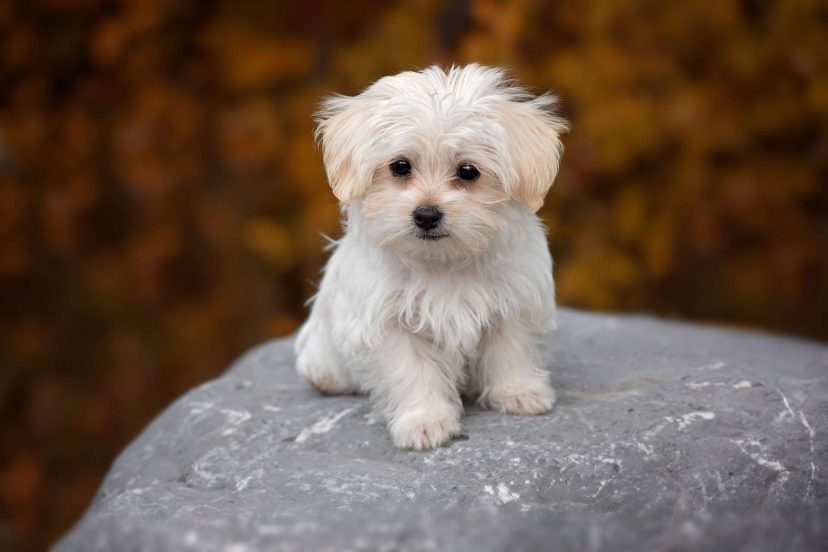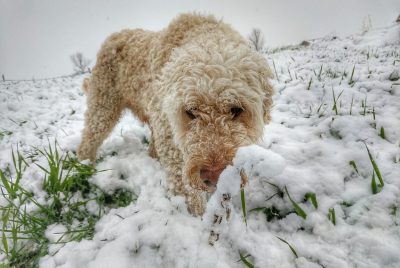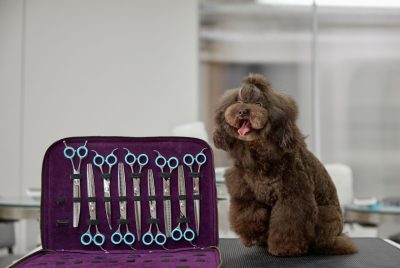What Dog Breeds Are Hypoallergenic?
I have had my fair share of experience with different breeds of dogs, and my concern has always been to get hypoallergenic dogs! As a dog lover, I went head-on to do all the research necessary to find out more about them. Since I live in a family-oriented household, I have to go for breeds which are a good choice for allergy sufferers.
In this article, we will look into what dog breeds are hypoallergenic. So, let’s get started.
What are Hypoallergenic Dogs?
Firstly, let’s make one thing super clear: there is no such thing as a 100% hypoallergenic dog! Surprised much? I was too when I first learned this. All dogs produce allergens in their saliva, urine, and dander (dead skin cells). However, some breeds are more allergy-friendly – as they shed less allergens!
What Causes Dog Allergies?
Do you often wonder, what exactly causes dog allergy? Well, it’s not the dog’s fur, for sure! The main culprit is a protein present in the dog’s saliva and urine. But how does it spread?
When the dog licks itself, it spreads to its fur and skin. And then, when the dog sheds the dead skin cells or the hair, the allergens spread to the environment – which is what causes the allergies.
Why Are Some Dogs Considered Hypoallergenic?
You might come across different breeds that are hypoallergenic. Let’s break out what that exactly means, and what dog breeds are hypoallergenic.
So, the dogs that have hair – and not fur are the ones that are generally less allergenic. This is mainly because the hair shed less as compared to the fur. However, as we discussed previously, the hair is not the cause of allergens, it’s the saliva. So, they may still lick themselves, and the allergies might spread through the dead skin cells.
Similarly, the single-coat dogs instead of double coats are hypoallergenic, for all the same reasons. Some dogs that are hairless or nearly hairless are also less allergenic. On the other hand, some dogs that produce less dander are also better options.
Remember, less shedding doesn’t always mean fewer allergens, but it can help reduce the spread of allergens in your home.
What Dog Breeds Are Hypoallergenic?
Now, let’s look at some breeds that are good enough for allergy sufferers! I have got you! Keep in mind that even these dogs might cause reactions in some people, so watch out for that. I have categorized the dogs according to their sizes, as some people would prefer a larger dog than others – or some might want to go for smaller ones.
Small Hypoallergenic Dogs
Maltese
These little white fluffballs are known for their silky, hair-like coats that shed minimally. They are playful, affectionate, and adapt well to apartment living.
Bichon Frise
Bichons have a cotton-ball appearance, which make them look very cute. They are not only adorable but also great for allergy sufferers. Their curly coat traps dander, reducing allergens in the air.
Yorkshire Terrier
Yorkies have hair similar to humans rather than fur, which means less shedding and fewer allergens. They are spunky little dogs with big personalities.
Medium-Sized Hypoallergenic Dogs
Poodle (Standard, Miniature, and Toy)
As a Goldendoodle owner, I can attest to the low-shedding qualities of Poodles. I love the poodles! They are intelligent, active, and come in three sizes to suit different lifestyles.
Portuguese Water Dog
Made famous by the Obama family, these dogs have a coat similar to Poodles and shed minimally. They are very energetic and love water activities.
Soft Coated Wheaten Terrier
These friendly dogs have a soft, silky coat that sheds very little. They are playful and make great family pets.
Large Hypoallergenic Dogs
Giant Schnauzer
The largest of the Schnauzer breeds, these dogs have a wiry coat that sheds minimally. They are intelligent and make excellent guard dogs.
Afghan Hound
Known for their long, silky coats, Afghan Hounds surprisingly don’t shed much. They require regular grooming but can be a good choice for allergy sufferers.
Irish Water Spaniel
With their curly, water-resistant coats, these dogs shed less than many other breeds. They are energetic and love swimming.
Caring for Your Hypoallergenic Dog
As a pet trainer and groomer, I can’t stress enough how important proper care is for these breeds. Here are some tips:
Regular Grooming
Most hypoallergenic breeds require frequent grooming to maintain their coats and minimize allergens. This might include:
- Daily brushing to remove loose hair and dander
- Regular baths (frequency depends on the breed)
- Professional grooming every 4-8 weeks
Creating an Allergy-Friendly Home
To further reduce allergens:
- Vacuum frequently with a HEPA filter vacuum
- Use air purifiers in your home
- Wash your dog’s bedding weekly
- Keep your dog out of bedrooms and off furniture if possible
Diet and Health
A healthy dog produces fewer allergens. Ensure your pup gets:
- A balanced, high-quality diet
- Regular exercise
- Annual check-ups with the vet
The Truth About Hypoallergenic Dogs
Now, let’s get real for a moment. As much as we’d love a magic solution, the truth is that no dog is truly hypoallergenic. Even breeds touted as allergy-friendly can cause reactions in some people.
Individual Variations
Here’s something interesting: allergen levels can vary significantly between individual dogs of the same breed. This means you might react to one Poodle but be fine with another. It’s not just about the breed, but the individual dog.
The Importance of Spending Time with a Dog
If you’re considering getting a dog but have allergies, it’s crucial to spend time with the specific dog you’re interested in before bringing them home. This will give you a better idea of how you’ll react to that particular pup.
My Experience with Goldendoodles
As a Goldendoodle owner, I often get asked if they’re hypoallergenic. The answer is: it depends. Goldendoodles are a cross between Golden Retrievers and Poodles, and they can inherit coat types from either parent.
Some Goldendoodles have more Poodle-like coats that shed less and may be better for allergy sufferers. Others might have coats more like Golden Retrievers, which shed more. It’s important to meet the specific dog and see how you react.
Conclusion
While no dog is completely hypoallergenic, many breeds can be a good fit for people with allergies. The key is to do your research, spend time with different dogs, and be prepared for proper care and grooming.
Remember, every person’s allergies are different, and what works for one might not work for another. Don’t be discouraged if the first dog you meet doesn’t work out – your perfect furry friend might be just around the corner!
Ultimately, the joy and companionship a dog brings to your life can be worth the extra effort. As a dog trainer and lover, I can confidently say that the bond you’ll form with your pup is truly special, regardless of their breed.
So, whether you end up with a curly-coated Poodle, a fluffy Bichon, or a unique mixed breed like my beloved Goldendoodle, remember that love and care are the most important ingredients for a happy, healthy relationship with your new best friend.




